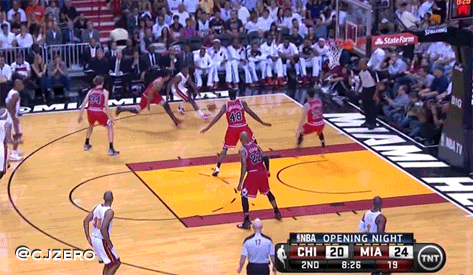Somebody sent me this yesterday so, I thought I'd share it.
Join StrengthCoach.com to read the full study here......
Join StrengthCoach.com to read the full study here......
It is a constant problem for coaches, fitness coaches and strength and conditioning coaches to select
exercises that are best suited for their sports. Earlier research on sports has examined specific
qualities in general training and is now progressing towards more complex and sport specific
qualities. When training for a specific sport, one of the main tasks is to analyze the specific sport in
terms of movement patterns, intensity and which type of strength the sport require. More studies
regarding sports specific training are still required. Sport coaches around the world suggest different
advice for optimal training for a specific sport and it requires scientific research to confirm or reject
the various proposals.
Unilateral (one leg) training is gaining popularity in sports. There are few scientific studies made in
this field today and there is a need for evaluating different unilateral training, such as intervention
studies and correlation studies, to assist sport coaches find exercises with a high transfer value to
each sport.

Intermittent sports require different activities such as change of direction, forward and backward running and lateral stepping ability. Intermittent sports are often performed unilaterally with the power and force development on one leg at the time, for example in running sports where one leg at the time is producing push-off acceleration force. The authors of this study discovered that, despite the increased interest for sport specific training, research on unilateral resistance training is lacking. We therefore decided to investigate two major and different intermittent sports in Sweden, soccer and ice-hockey, and the transfer value between unilateral leg exercises to CODS and linear sprint.
This study have been inspiring and challenging for us and hopefully it will contribute to increased knowledge on unilateral training. Along the way, we have had good guidance and this we are grateful for. First of all we would like to thank our participants which made this study possible. We would also like to thank Jonas Enqvist for useful guidance, interesting discussions and the help with the testing equipment. Rolf Idegård at Friidrottens Hus for the great hospitality during the testing procedures. Finally we would like to thank our supervisor Phd. Jesper Augustsson for appreciated advice and review of the study. This study was granted by Riksidrottsförbundet (RF)...... Keep reading.....
This is another example of why I always say "read the study".
Although I obviously love the conclusion, what the study doesn't say is that unilateral strength correlates better than bilateral strength. Still great stuff but, we need to make sure we read all the lines while we attempt to read between them.
Page 4 and 5 do present some studies that show that Change of Direction ( COD) does correlate better with unilateral strength than bilateral. This would seem obvious as change of direction relies strongly on unilateral braking/ stopping ability.

Intermittent sports require different activities such as change of direction, forward and backward running and lateral stepping ability. Intermittent sports are often performed unilaterally with the power and force development on one leg at the time, for example in running sports where one leg at the time is producing push-off acceleration force. The authors of this study discovered that, despite the increased interest for sport specific training, research on unilateral resistance training is lacking. We therefore decided to investigate two major and different intermittent sports in Sweden, soccer and ice-hockey, and the transfer value between unilateral leg exercises to CODS and linear sprint.
This study have been inspiring and challenging for us and hopefully it will contribute to increased knowledge on unilateral training. Along the way, we have had good guidance and this we are grateful for. First of all we would like to thank our participants which made this study possible. We would also like to thank Jonas Enqvist for useful guidance, interesting discussions and the help with the testing equipment. Rolf Idegård at Friidrottens Hus for the great hospitality during the testing procedures. Finally we would like to thank our supervisor Phd. Jesper Augustsson for appreciated advice and review of the study. This study was granted by Riksidrottsförbundet (RF)...... Keep reading.....
This is another example of why I always say "read the study".
Although I obviously love the conclusion, what the study doesn't say is that unilateral strength correlates better than bilateral strength. Still great stuff but, we need to make sure we read all the lines while we attempt to read between them.
Page 4 and 5 do present some studies that show that Change of Direction ( COD) does correlate better with unilateral strength than bilateral. This would seem obvious as change of direction relies strongly on unilateral braking/ stopping ability.
strength and conditioning coach, Abs Agility Balance Bicep curls Box jump Calf raises Core strength Deadlift Eccentric strength Endurance Leg extensions Olympics Pushups Skiing Speed Split squat Strength Training Speed Training,



No comments:
Post a Comment